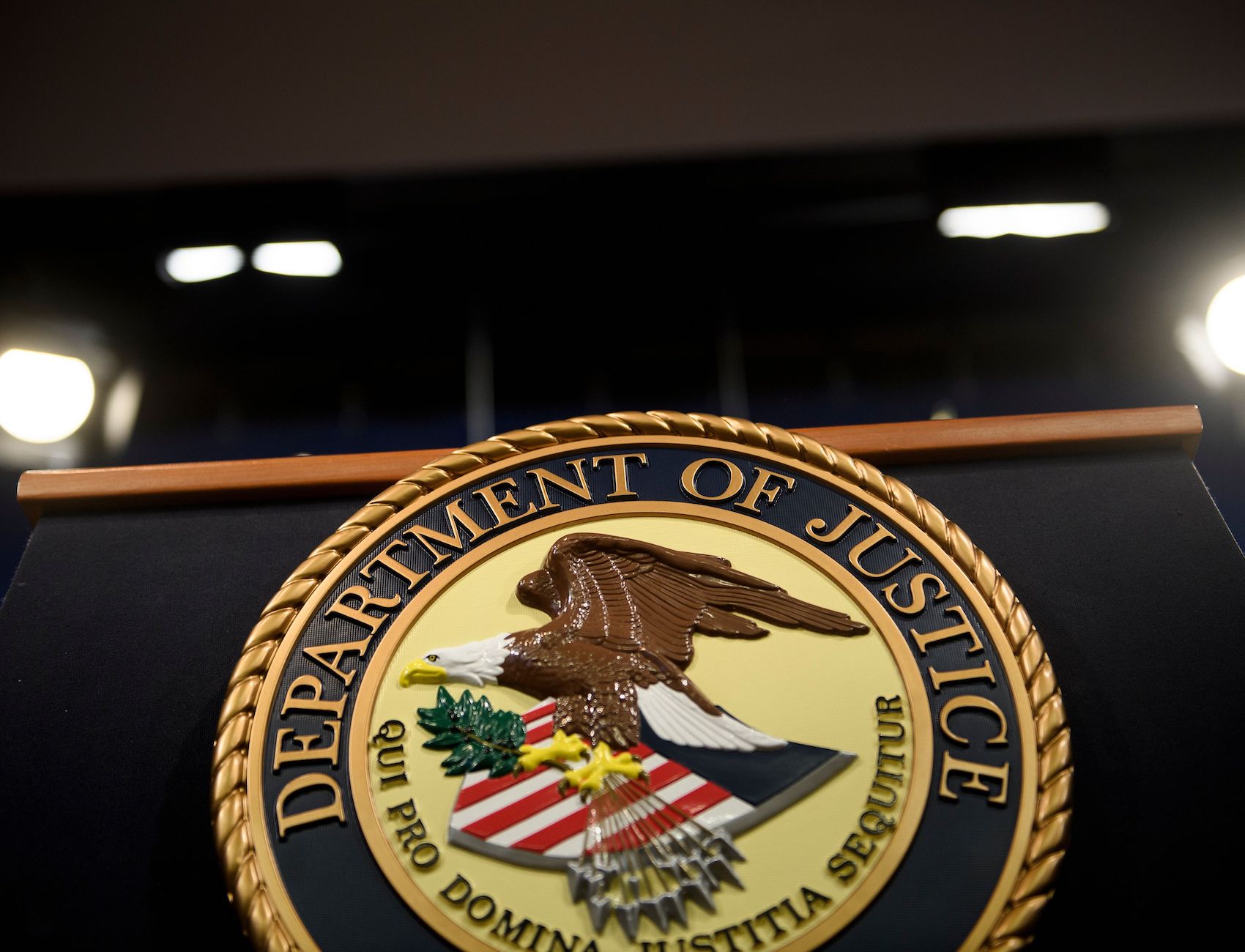Don’t Look to the DOJ to Keep Federal Prisons and Their Surrounding Communities Safe During the COVID-19 Pandemic
Experts are urging large-scale releases. But the Department of Justice often operates contrary to expertise.

This piece is a commentary, part of The Appeal’s collection of opinion and analysis.
The novel coronavirus is racing through our federal prison system. Last week, Patrick Jones, who was serving time for a nonviolent drug offense, was the first person in federal prison to die from COVID-19. As of Tuesday, eight prisoners have died, and 241 prisoners and 73 staff members have been infected at Federal Bureau of Prisons facilities. Vulnerable prisoners and staff alike face a great risk of infection and death. If the proper preventative measures are not taken quickly, thousands more will soon follow.
Because of these concerns, the federal government has considered the release of at-risk prisoners to limit the spread of the virus. Attorney General William Barr issued a memorandum instructing the Bureau of Prisons to expand its use of home confinement and release some of its most vulnerable prisoners, while acknowledging that the Bureau is facing “emergency conditions” that are “materially affecting” its operations.
But don’t look to the DOJ to release enough people to make prisons and their surrounding communities safe. The DOJ’s new policy only applies to people in the lowest security levels. It is uncertain whether the DOJ will release people convicted of violent offenses, even if they are high risk and have only a few months or days remaining on their sentences. And without providing some sort of categorial relief, the DOJ’s process for releasing people to home confinement will not come fast enough. If the DOJ releases only a few thousand people, its prisons will continue to serve as COVID-19 petri dishes.
Yet the danger presented by COVID-19 to those who live and work in the federal prison system is clear. Prisons are high-density areas where social distancing is nearly impossible; the conditions are often unsanitary; the medical treatment is subpar in the best of times; and a large segment of people in prison are vulnerable because of age or health.
And the dangers posed by COVID-19 will not be limited to prisoners. Staff and vendors will bring the virus into federal prisons and it will spread quickly. Federal prisons are often located in rural communities. When staff and vendors leave federal prisons in Lisbon, Ohio, or Butner, North Carolina, they will carry the virus with them to the surrounding communities that are least equipped to handle an outbreak.
For these reasons, the United Nations and a number of experts are urging large-scale releases. Other countries are following this advice and temporarily releasing large numbers of particularly vulnerable prisoners.
But the DOJ often operates contrary to expertise. Although experts of all political stripes have demonstrated that the criminal justice system can be reformed in ways that protect liberty and improve public safety, the DOJ continues to enforce and advocate for policies that maintain or extend mass incarceration.
I recently reviewed the DOJ and the National Association of Assistant U.S. Attorneys’ records of lobbying on criminal justice reform proposals. I found that they routinely oppose modest criminal justice reforms, even when those reforms will increase public safety. Much of the opposition revolves around the self-interested claim that reforms will make their job of prosecuting and incarcerating people more difficult—as if that’s the only goal of the criminal justice system. Worse still, the DOJ has undermined presidential policies favoring reform when they intrude on the department’s own policy prerogatives. When President Trump publicly supported the First Step Act, the DOJ and some federal prosecutors continued to lobby against the bill. Given the DOJ’s history of opposing any reduction in the federal prison population, it is wishful to think the department will release enough people to adequately protect those in federal prison and the surrounding communities.
President Trump has rightly questioned the DOJ on criminal justice policy, asking, for instance, whether it is necessary to keep people like Alice Marie Johnson—who committed a federal drug offense—in prison for life. He should do so again. The president should once again overrule the DOJ, and commute the sentences of the most vulnerable and those with less than a year remaining on their sentence.
Federal judges can also reduce the threat posed by the virus. Because of changes made to the federal compassionate release regime by the First Step Act, federal judges have the power to find that, given the dangers that COVID-19 presents to vulnerable people in prison, these are extraordinary circumstances that justify a sentence reduction. Judges will need to act with the courage that the elected branches have, as of yet, failed to muster.
As a former federal prisoner who now works in the public eye as a law professor, I hear the worst of what some think about people in prison. Some will say that if you did the crime, you should serve the time—even if, as a result of COVID-19, it becomes a death sentence. That view of human worth is inconsistent with the Eighth Amendment’s prohibition on cruel and unusual punishment and with the important value that even those who have committed crimes, like me, deserve a second chance. If someone is vulnerable or has less than a year to serve on their prison sentence (regardless of the crime they committed), their sentence should not be retroactively converted into a death sentence simply because the DOJ is unable to keep its prisons safe.
Shon Hopwood is an associate professor of law at Georgetown University Law Center and the author of “Law Man: Memoir of a Jailhouse Lawyer.”
